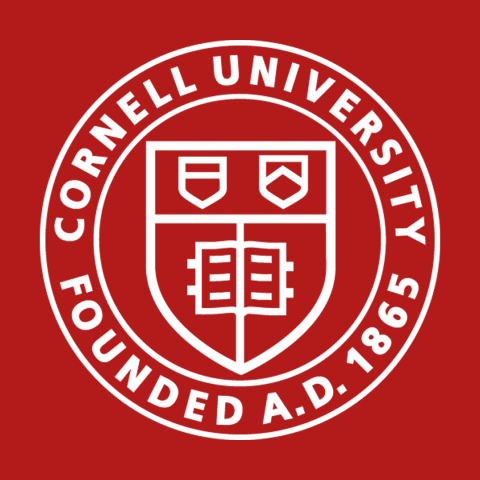In the News
Advances in research, technologies, and more in the field of wildlife medicine, from Cornell and beyond.
The European Space Agency: Business Applications has guest authored this post to show how space technology can be applied to the conservation and management of wildlife. Continue reading to hear about a few of the projects that have used satellites to help wildlife.
 Dr. Sara Childs-Sanford, a veterinarian at the Janet L. Swanson’s Wildlife Health Center, a clinical service of the Cornell University Hospital for Animals (CUHA), shared her experience treating local wildlife directly impacted by lead poisoning.
Dr. Sara Childs-Sanford, a veterinarian at the Janet L. Swanson’s Wildlife Health Center, a clinical service of the Cornell University Hospital for Animals (CUHA), shared her experience treating local wildlife directly impacted by lead poisoning.
 The bald eagle is an American icon, a symbol of freedom, and for conservationists, one of the nation’s greatest success stories. Restored from near extinction, the species has been thriving once again—or so we thought. As it turns out, mankind may be placing unnecessary pressure on America’s best known bird. 17% of bald eagle carcasses examined revealed death due to lead poisoning, and 80% had measurable lead levels in their blood, tissues, or bone.
The bald eagle is an American icon, a symbol of freedom, and for conservationists, one of the nation’s greatest success stories. Restored from near extinction, the species has been thriving once again—or so we thought. As it turns out, mankind may be placing unnecessary pressure on America’s best known bird. 17% of bald eagle carcasses examined revealed death due to lead poisoning, and 80% had measurable lead levels in their blood, tissues, or bone.
This month, Cornell welcomed back thousands of alumni from many different locations, generations, interests, and affiliations to their home on The Hill. At the 2017 Reunion Weekend, a panel of veterinarians discussed the future of Wildlife Health Cornell. “Wildlife Health Cornell represents an unprecedented approach to the health challenges wild animals face here in the northeast U.S. and around the world – a comprehensive, science-based response by a team of the world’s top wildlife health experts. With an emphasis on the types of interdisciplinary collaboration often required to foster real progress along the science to policy and action continuum, Wildlife Health Cornell has grown out of a palpable sense of genuine urgency regarding the fate of our planet’s wildlife, an increasing understanding of our own dependence on the planet’s natural systems, and a recognition that it will take a new generation of colleagues to halt and reverse the trends we face.” Watch the livestream of the panel discussion here.
The CUCVM student community would like to extend a warm welcome to a number of phenomenal new hires in the wildlife health realm. Recently, the CVM has brought-on seven faculty and staff, with the goal of growing Wildlife Health / One Health / Planetary Health programs at a critical time in the College’s strategic planning. The group strives to develop and apply science-based, multidisciplinary approaches to conservation, including through a focus on Planetary Health. In short, Planetary Health is a field focused on improving our understanding and applying appropriate metrics regarding the public health impacts of anthropogenic environmental change, so as to be able to inform decision-making in the land-use planning, environmental conservation, and public health policy realms. Planetary Health also provides a lens for the new CVM-led Master of Public Health program, with its first class starting in September of 2017. There have already been numerous excellent discussions and many new initiatives are underway, not only within the CVM, but throughout the University. Hopefully, new collaborative efforts will arise and continue to foster future discussions and cross-disciplinary action!
Every year, the National Wildlife Federation (NWF) hosts National Wildlife Week (this year, Monday March 13th through Friday March 17th). NWW is an education program aimed at increasing wildlife awareness among K-12 students. This year’s campaign includes a bracket where kids can vote each day for their favorite animals, learn about each species’ life and habitat, symbolically adopt the animals and read about programs that aid in their conservation.
In a time of global uncertainty and increased tension, elephants have just been given their best chance of survival since the start of Africa’s exploitation centuries ago. China’s president Xi Jinping has followed through on an agreement with Barak Obama to commit to a timetable for reducing the brutal demand for ivory that is wiping out Africa’s elephants. China has promised that it will have stopped domestic trade in ivory by the end of 2017. China represents the world’s largest ivory market. If the bottom drops out of the market, the incentives to kill will drop, too.









